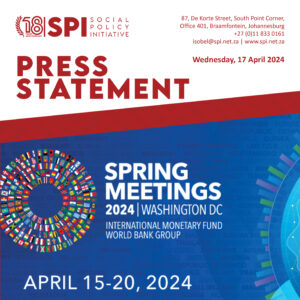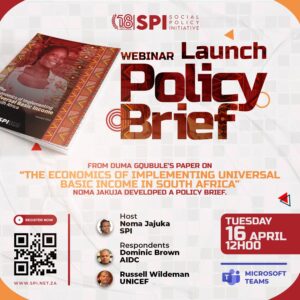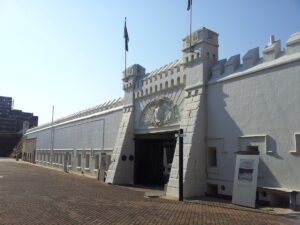Introduction
The Decent Standard of Living (DSL) project is a groundbreaking project in South Africa that combines subjective and survey data to identify key priorities needed to live a good life, and it attempts to quantify how much a person would need monthly in order to live a socially-determined acceptable standard of living to enable them to participate fully in society. While other poverty indicators exist, such as the upper and lower bound poverty line, in addition to the food poverty line, the DSL is an attempt to go beyond that, using social consensus to measure what is required to not just merely survive, but to live a life without struggle. This is essential to the realisation of the fundamental right to dignity guaranteed to all in Section 9 of the Constitution.
Indeed, despite a long running debate on poverty and inequality in South Africa, we have not had a robust measure of what it is to live decently. Simply put, we do not know what a decent life looks like – nor what the associated income level would be. Thus, developing a standard is essential to enable policy makers to design policies that are aligned to meet that standard. This is foundational to the National Development Plan (NDP) 2030 adopted by government in 2012 that commits to a multifaceted Decent Standard of Life.
In addition, the South African government is a signatory to the United Nations International Covenant on Economic, Social, and Cultural Rights (UN ICESCR) that guarantees the right to an adequate standard of living for all in Article 11 of the Covenant. The UN CESCR Committee published its recommendations in November 2018 on South Africa’s initial report on its implementation of provisions outlined in the ICESCR and made various recommendations. One of the recommendations, were that the South African government needs to create a composite index on the cost of living that provides the government with a benchmark to adequately set the levels of social benefits consistent with the requirement to ensure an adequate standard of living for all. The right to an adequate standard of living – which includes food, clothing and housing, and “continuous improvement of living conditions” is enshrined in ICESCR in Article 11.
The project is a collaboration between South Africa based, Studies in Poverty and Inequality Institute (SPII), the Labour Research Service (LRS) and the United Kingdom based, Southern African Social Policy Research Insights (SASPRI). The research survey was funded by UNICEF whose work in the multi-dimensional poverty space fits in with the SPII objective of generating research that informs the fight against poverty and inequality.
The DSL measure should be regarded as complementary to the existing poverty line measures. It builds on several earlier studies involving quantitative research, including:
A 2006 study in which 48 focus groups took place across the country about what comprises an acceptable standard of living;
A module in 2006 South African Social Attitudes Survey (SASAS) to determine which of the 50 items are socially perceived necessities (piloted in 2005);
Modules in 2008/09 and 2014/15 Living Conditions Surveys (LCS) to measure possession and lack of the SPNs.
By 2021 it was deemed important to return to field and refresh the survey in order to get an updated indication of whether these indicators are still relevant to a decent life currently, and the associated monetary amount required especially in a world so affected by the global Covid-19 pandemic. Due to Covid-19 restrictions, a telephonic survey of individuals was conducted via interviews.
BDRC Africa was commissioned on the 26th of April 2021 to conduct a primary research study to understand social attitudes around SPNs that people need in order to have a decent standard of living in present-day South Africa. The survey was based on an established measurement model comprising 50 key attributes relating to personal belongings, access to community-based services, activities and relationships with family and friends. In June 2021, BDRC Africa commenced the fieldwork conducting individual telephone interviews to obtain attitudinal information about the things people thought would be essential to live a life of dignity in present-day South Africa.
The importance of multidimensional measures of poverty has been globally acknowledged. One firm advocate is UNICEF, according to UNICEF South Africa’s Country representative, Ms Christine Muhigana …
Click the button below to download the full report.


